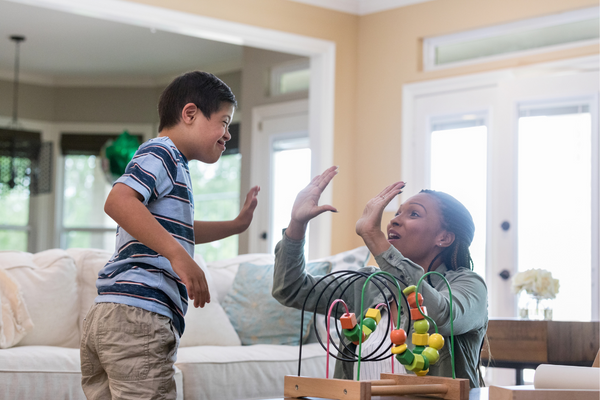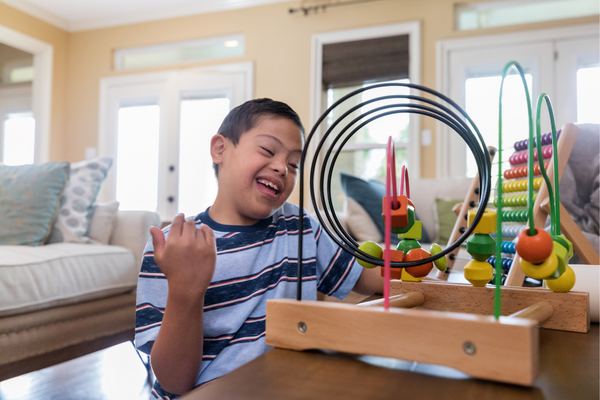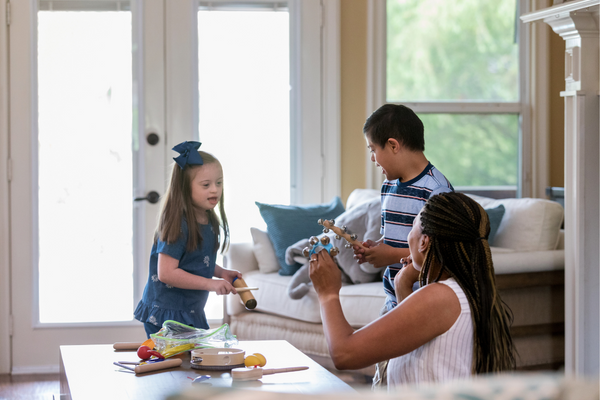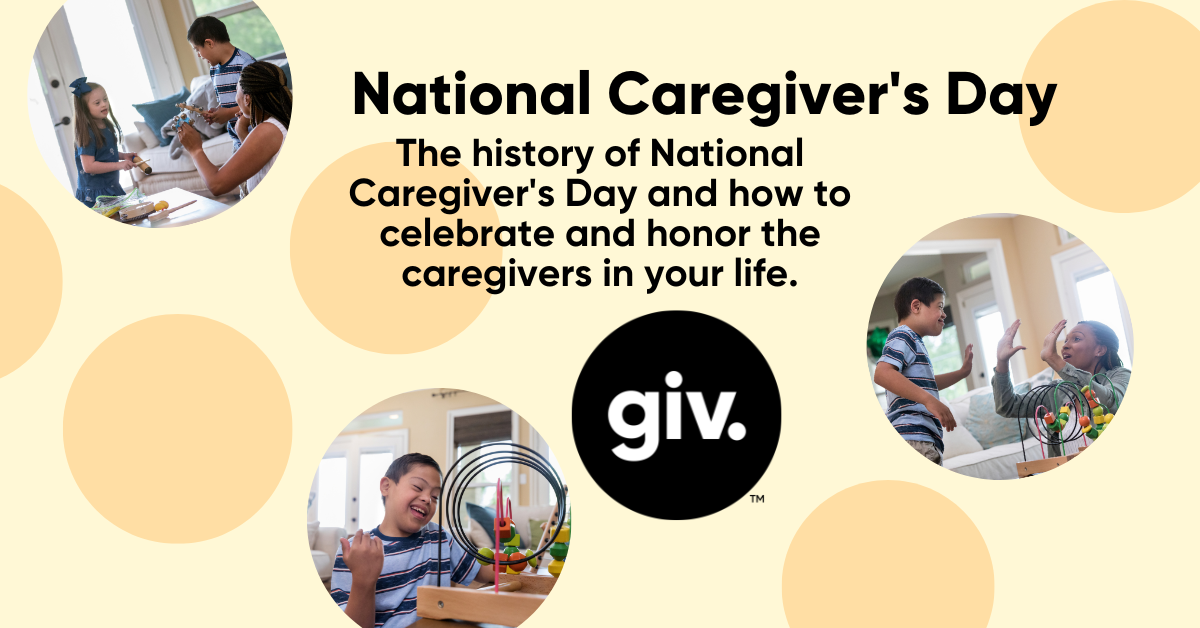On the third Friday of every February, the nation comes together to celebrate National Caregivers Day. This day holds profound significance, acknowledging the relentless dedication and unwavering commitment of caregivers who selflessly provide support and care to individuals in need.
In this blog post, we will explore the essence of National Caregivers Day and delve into the challenges and triumphs experienced by family caregivers, paid caregivers, and health care providers within the context of disability caregiving. Join us on a journey to recognize and honor the unsung heroes of caregiving, whose tireless efforts contribute to the well-being of our community.
National Caregivers Day
National Caregivers Day serves as a poignant reminder of the invaluable contributions made by caregivers across the country. This day is dedicated to honoring those who devote their lives to providing care, support, and comfort to individuals facing various health challenges, including intellectual and developmental disabilities. It is a day to express gratitude and recognition for the often unnoticed sacrifices made by family caregivers, paid caregivers, and health care providers.
In the spirit of National Caregivers Day, it’s crucial to highlight the diverse spectrum of caregivers. Family members often find themselves thrust into the role of caregivers, navigating through the complexities of providing care to a loved one with a disability. Their journey involves not only understanding the specific needs of the individual but also managing the emotional toll that caregiving can take.
This day offers an opportunity to shed light on the unique challenges faced by family caregivers and the immense love and dedication they bring to their caregiving role.
The Crucial Role of Family Caregivers
Family caregivers play a pivotal role in the lives of individuals with intellectual and developmental disabilities. Often, family members become primary caregivers, taking on responsibilities ranging from managing medications and researching symptoms to coordinating visits with health care providers. These dedicated individuals not only provide physical care but also offer emotional support, acting as a crucial pillar in the lives of their loved ones.
Beyond the daily tasks associated with caregiving, family caregivers become advocates for their loved ones. They navigate the intricate healthcare system, ensuring that their family members receive the necessary resources and support.
The emotional connection between family caregivers and their loved ones creates a unique bond that goes beyond the realms of traditional caregiving. It involves understanding the person behind the disability, recognizing their strengths, and fostering an environment that promotes autonomy and dignity.
The Impact of Paid Caregivers in Disability Care
In the realm of disability caregiving, paid caregivers are indispensable allies. These professionals bring specialized skills and training to the table, offering personalized care plans that cater to the unique needs of individuals with intellectual and developmental disabilities.
Their role extends beyond the physical aspects of care, encompassing emotional support, companionship, and a commitment to enhancing the overall quality of life for those under their care.
The collaboration between paid caregivers and individuals with disabilities often results in transformative relationships. These caregivers, equipped with the knowledge of specific disabilities, work towards fostering independence and empowering individuals to lead fulfilling lives.
National Caregivers Day is an opportune moment to acknowledge the professional expertise that paid caregivers bring to the field of disability caregiving. It’s a day to celebrate their commitment to continuous learning and adapting their skills to meet the evolving needs of the individuals they serve.

Collaboration with Health Care Providers
Collaboration with health care providers is fundamental in disability caregiving. Establishing a strong partnership with physicians, nurses, and other medical professionals ensures a comprehensive and holistic approach to care.
Caregivers work hand in hand with health care providers to monitor medication, manage symptoms, and address the specific challenges that may arise in the course of providing care to individuals with disabilities.
The synergy between caregivers and health care providers is essential for creating a seamless continuum of care. National Caregivers Day provides an opportunity to recognize the collaborative efforts of these two critical components in the caregiving ecosystem.
It is a day to appreciate the open communication channels between caregivers and health care providers, ensuring that the individual’s needs are met with a comprehensive and well-coordinated approach.
Juggling Caregiving Duties
Family caregivers, paid caregivers, and health care providers often find themselves juggling an array of caregiving duties. From cooking special meals tailored to dietary needs to managing finances and researching symptoms, their responsibilities are diverse and demanding. Recognizing and appreciating the multifaceted nature of caregiving duties is crucial in understanding the holistic care provided by these dedicated individuals.
The day-to-day responsibilities of caregivers go beyond the conventional understanding of caregiving. Family caregivers may find themselves acting as financial managers, ensuring that the financial needs of their loved ones are met.
On the other hand, paid caregivers may need to navigate the intricacies of meal planning, considering dietary restrictions and preferences. National Caregivers Day prompts us to reflect on the myriad roles that caregivers play and emphasizes the need for a supportive infrastructure that acknowledges and eases the diverse responsibilities they shoulder.
The Vital Role of Hospice Agencies
For individuals with intellectual and developmental disabilities facing terminal illnesses, hospice agencies become vital sources of support. Caregivers collaborate with hospice professionals to ensure that their loved ones receive compassionate care in their final days. This partnership involves managing pain, addressing emotional needs, and providing comfort to both the individual and their family members.
The intersection of disability caregiving and hospice care brings forth unique challenges and poignant moments. National Caregivers Day offers an occasion to recognize the emotional resilience of caregivers facing end-of-life care scenarios.
It is a day to honor the compassion and empathy exhibited by hospice agencies and their caregivers, as they navigate the delicate balance between providing comfort and maintaining the dignity of the individual receiving care.

The Emotional Toll on Caregivers
Caring for someone with a disability can take a toll on the mental health of caregivers. The emotional challenges they face, from feelings of stress and depression to the constant need for support, are often overlooked.
Recognizing the importance of mental health in caregiving is essential, and creating avenues for caregivers to access support groups and services is crucial for their well-being.
The emotional landscape of caregiving is complex and nuanced. Family caregivers may experience a range of emotions, from joy and fulfillment to stress and occasional feelings of isolation. National Caregivers Day is an opportunity to shed light on the emotional well-being of caregivers, emphasizing the need for accessible mental health resources and support networks.
It is a day to acknowledge that caregivers are not just providers of physical care but also individuals with their emotional needs, deserving of understanding and compassion.
Balancing Act – Work and Caregiving
Many caregivers find themselves balancing caregiving responsibilities with other aspects of life, including employment. The strain of managing a full-time job while providing care to a loved one can be overwhelming.
Acknowledging the challenges faced by caregivers in the workplace and advocating for supportive policies can contribute to a more inclusive and compassionate society.
The delicate balance between work and caregiving is a reality for many individuals, and National Caregivers Day prompts us to consider the impact of workplace policies on caregivers. Employers play a crucial role in creating environments that support the needs of caregivers,
recognizing the dual roles they play in both professional and personal spheres. This day advocates for flexible work arrangements, employee assistance programs, and a greater awareness of the challenges faced by caregivers striving to maintain a delicate balance in their lives.
The National Alliance for Caregiving
The National Alliance for Caregiving plays a pivotal role in advocating for the rights and well-being of caregivers across the nation. Their initiatives aim to provide resources, support, and recognition to those who dedicate their lives to caregiving.
By fostering collaboration and awareness, the National Alliance for Caregiving contributes to the establishment of a caregiving-friendly society.
National Caregivers Day is an opportune moment to shine a spotlight on the collective efforts of organizations like the National Alliance for Caregiving. The day recognizes the advocacy work undertaken by such entities to bring about positive changes in policy, support systems, and public perception surrounding caregiving.
As we celebrate caregivers, we also acknowledge the instrumental role played by advocacy organizations in amplifying the voices of those dedicated to caregiving.
Looking to the Future – Innovations in Disability Care
As we celebrate National Caregivers Day, it’s essential to look to the future and explore innovations in disability care. From technological advancements to improved training programs for caregivers, the ongoing efforts to enhance the caregiving landscape are promising. Recognizing and embracing these innovations ensures that individuals with intellectual and developmental disabilities receive the best possible care.
The landscape of disability care is continually evolving, and National Caregivers Day serves as a platform to celebrate advancements in the field. Innovations such as assistive technologies, telehealth services, and enhanced training programs contribute to a more effective and sustainable caregiving environment.
This day invites us to envision a future where caregivers have access to cutting-edge tools and resources, enabling them to provide the highest quality of care to individuals with disabilities.

In conclusion, National Caregivers Day serves as a poignant reminder of the dedication, sacrifice, and compassion exhibited by family caregivers, paid caregivers, and health care providers within the realm of disability caregiving.
As we honor these unsung heroes, let us strive to create a more supportive and inclusive society, where caregivers are recognized, appreciated, and empowered to continue their invaluable work. The celebration of National Caregivers Day is not just a one-day event; it’s a continuous acknowledgment of the profound impact caregivers have on the lives of individuals with intellectual and developmental disabilities.






